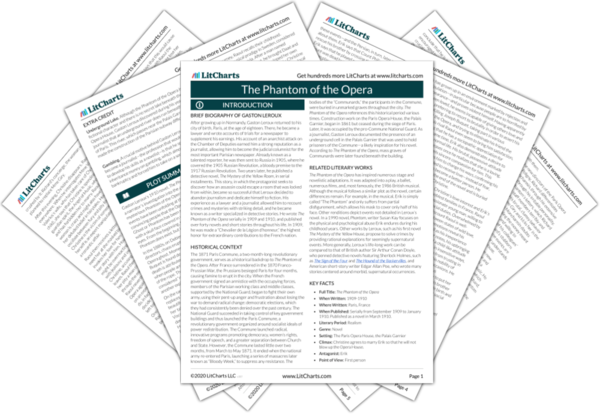Erik’s decision to free Christine derives from his understanding that Christine is a kind, honest, respectful being—and that he will probably never receive more from her, since she loves Raoul, not him. However, once again, the reader’s capacity to trust Erik’s narrative relives exclusively on whether or not one decides to believe in Erik’s sincerity. Indeed, no concrete proof of Raoul and Christine’s existence remains, besides the narrator’s recollection of the Persian’s testimony.
